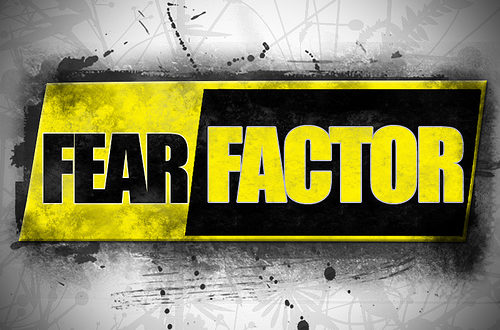The Fear Factor
The Fear Factor
Parshat Kedoshim, the second of this week’s double parsha, begins with an injunction to be holy. “You shall be holy because I, the Lord your God, am holy” are its opening words.
People seek to be holy in all sorts of ways and often travel to far-flung places in search of the holy man who, for some reason, is seldom found anywhere close by like in a mall. No, he or she is usually on a mountain-top in Asia or India. Something about being holy implies that it should not be convenient and indeed the whole notion of holy is too often shrouded in mystery.
My rebbe, Rav Noach Weinberg, zt”l used to illustrate a confusion regarding the term Holy by asking someone if they wanted to be a bafufstick. “A bafufstick?” the guy would answer, “What the heck is a bafufstick?!” “Precisely”, is what Rav Noach would say. How can you be something if you have no definition of what it is? And whereas one would never toss out the term bafufstick before arriving at its meaning, people all the time feel comfortable using the word Holy without ever having a clear definition or meaning as to what exactly Holiness might be.
The Torah helps us out by immediately launching into a number of injunctions after its opening request that we be holy, the implication being that these mitzvot would be the path to holiness. Interestingly, none speak of distancing oneself from humanity and being secluded on a mountain-top or in a cave, spending years absorbed in navel contemplation. We Jews are a lot more practical than that and holiness can only be attained through our faithful interactions with others, with God and with ourselves.
The initial mitzvah of this list is most telling. “A person must fear his mother and father…” is how the Torah begins our instructions to become holy. Not Honour mind you, as mentioned earlier in the Ten Commandments, but Fear. Hmmm… we do not have too much fear of parents anymore. Parents have taken on more of a friendship role than the old time disciplinarian figure and this has extended to society at large.
People generally do not like to talk about fear. Rabbi Weinberg used to say that one should avoid talking about Heaven and Hell when teaching about Judaism to the novice in our day and age. I recall a few years ago reading a book review about a number of modern works written about religion and how the notion of Heaven and Hell has been watered down to the point where there is an almost complete focus on just the good parts, the Heaven bits, and an avoidance of the negative notion of Hell. While Judaism has a vastly different concept of the afterlife than Christianity, this attitude certainly mirrors our society where everyone ought to be a winner, self-esteem is paramount and trophies are given to all participants merely for just showing up. We don’t like to speak about “fear of sin” or holding back from doing wrong or their cousins, Failure and Consequence anymore in polite company. And that in of itself is something we ought to fear.
The Hebrew word for fear, יראה Yirah, is related to the word רואה Roeh, which means “to see”. Fear is inextricably bound to the idea that one sees and anticipates the long-term consequences of one’s actions. Sin, or mistakes, happens when we refuse to take the time to contemplate and perceive the repercussions and ultimate results of our immoral or lazy behavior. A good dose of fear of doing something dumb is often the necessary antidote to keep one in check to ensure that we make the right choices so we not mess up our lives.
As a parent I often think about my role as a father, the amount of discipline I exercise and the impact that it has in the eyes of my children. I know that my father loomed very large in my upbringing and I was often kept in check to stick to the straight and narrow thanks to his clear ideas of what was true, what was right, his powerful sense of integrity coupled with his willingness to strongly express his views. My dad was never much of a diplomat, which was not always easy to live with, but any negatives from that were offset by the clear sense of right and wrong that he instilled into his children.
There is no question that our society has lost this awareness for a proper dose of fear and we see this daily through the behavior of children running wild and undisciplined because they are being brought up without a parental figure to keep them in line and to give them limits and boundaries. Parents give in to every whim, want and kvetch of their kids often because the parents themselves act like children, exhibiting very little self control and indulging themselves without boundaries. How can such a person even begin to serve as a role model? Hence our snowflake, entitled generation as a natural by-product.
The Torah teaches that Holiness is not some obscure notion where mystery men speak in riddles and live far away, detached from everything that is real and practical. The Holy man and woman can be found everywhere, and especially in those people who have lived with morals, discipline, hard work, truth and goodness. This is where Holiness begins, or dies, as the case may be and a little bit of fear can go a long way in creating a spiritual and holy existence.
In my fashion I have been a good man
I have loved and I have lost…
There have been times, I have seen the reaper
In the bad times, and in the good
I have bent down, I have touched the ground
Saying prayers and touching wood
-Gordon Lightfoot
Rabbi Tzvi Nightingale
Aish South Florida
954-989-2474

